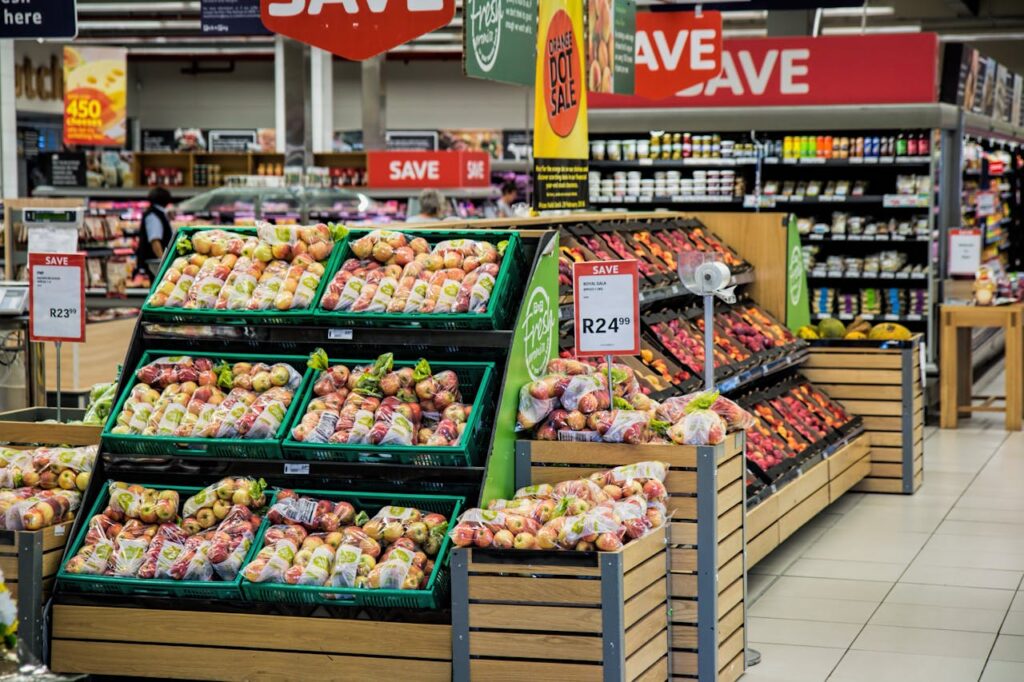
Find out how Trump’s overseas policies will affect your wallet, with insight from a finance specialist.
“I love tariffs.” “Tariff is my favourite word.” “The most beautiful world in the dictionary is tariff.” “I tell you: I think it’s more beautiful than love” – forget Stormy Daniels, Donald Trump has a new love affair – and it might hit closer to home than you expect.
Donald Trump was largely light on policy during his 2024 presidential campaign trail, but his keystone policy on the economy centred on tariffs – taxes imposed by a government on imported or exported goods. In theory, Trump’s tariffs are designed to protect domestic industries and generate revenue to keep business within the US.
Trump has suggested tariffs of 10% to 20% on all imported goods, a huge increase from the average 3.3% tariff on goods from the UK currently.
As many business-owning Brits have felt in their wallets over the last few years, exporting goods to the US hasn’t gotten any cheaper, with real-term wage increases continuing to disappoint. But what does it mean for the average UK citizen?
We wanted to find out how you could be affected without the politico jargon, so we asked the commercial finance brokers at Anglo Scottish for their breakdown on how you can expect the president’s next four years to affect your income.
Higher prices on imported goods
Total UK imports from the US totalled £116.1 billion in the four quarters to the end of 2024 and £188.2 billion in exports – that’s a lot of goods that are set to be affected by a change in tariffs.
The UK risks experiencing an economic knock-on effect as a result of these tariffs, with one think tank predicting that a universal Trump tariff could halve UK GDP growth and push up inflation. But what does this mean in layman’s terms?
“It’s important to note that these are predictions and not guarantees,” says Carolyn Simpson, Senior Marketing Manager at Anglo Scottish. “But should these predictions come to pass, higher inflation means higher costs – not to mention the risk of even higher costs on US imported goods if the tariffs trigger a retaliation tariff from the UK government.”
More costly vegan alternatives
Trump plans to save the most severe tariff rises for specific countries, with China mentioned as having a 60% tariff imposed on it if Trump has his way.
Extreme tariffs on nations that supply production-based products risk a ripple effect on the UK economy, with increased prices being passed on to the UK consumer.
“China was the country we imported the most renewable feedstocks from in 2023 – 2966 million tonnes,” says Simpson. “These are products that range from rapeseed oil to animal fats for biodiesel production, and they filter into the products and services we purchase more than you may think.
“For example, businesses may be forced to increase the prices of products due to the rising cost of packaging production. As well as this, many plant-based and eco-friendly food products rely on competitively priced renewable feedstocks to keep prices lower on plant-based products,” Simpson continues. “If tariffs resulted in increased costs for imported renewable feedstocks, the cost of plant-based meat and dairy alternatives could rise with it.”
Your money could be worth less
The US economy is a global superpower. The US’ trade decisions can either directly or indirectly affect the UK consumer’s spending power, and the most direct way we see this is in the value of the pound, as Simpson explains:
“Economic uncertainty can often be caused by quite drastic changes in economic policy. You only have to look at the September 2022 mini-budget in the UK – or in the US, Donald Trump’s rhetoric on tariffs.
“The dollar dropped dramatically at the beginning of January due to confusion about Trump’s tariff plans – a simple communication error that made some believe the plans would be watered down, which was corrected as false in the following days,” says Simpson. “This little misunderstanding shows how volatile currency value can be when communication and plans around a policy are not airtight.
“If similar slip-ups occur around the extremity of the tariff placed on the UK, which as of now we are assuming will be 10%, then similar instability in the value of our currency could yet be felt. You’ll feel the biggest squeeze when purchasing everyday imported items like fruit, when importing goods from abroad or even when exchanging currency to go on holiday.”
“This really hammers home the importance of proper financial planning – for larger purchases, we expect to see more and more people using finance to help spread the cost of significant items over time.”
Disruption in the job market
The UK’s response to harsh tariffs may have future ramifications when it comes to UK exports, affecting UK industry and therefore the job market.
“Harsh tariffs, even if not placed on the UK, may still cause frustration for UK exports,” says Simpson. “Dealing with the EU could prove more difficult, affecting supply chains between the EU and UK and ultimately resulting in reduced profits – or in severe cases – job losses.
“What’s most important is that the UK looks after its business assets and workers to help us stay on a steady track to future growth. Self-reliance and the ability to adapt to change is the key to weathering any sudden change in the global economy.”
“It’s important to remember that everything is subject to change, especially in the first 100 days of a US presidency,” concludes Simpson. “The future of global trade with the US is still not crystal clear. It’s important to remember that changes will continue to evolve over the coming term and that the best the UK can do is continue to play fair and focus on growth that benefits all.”




























